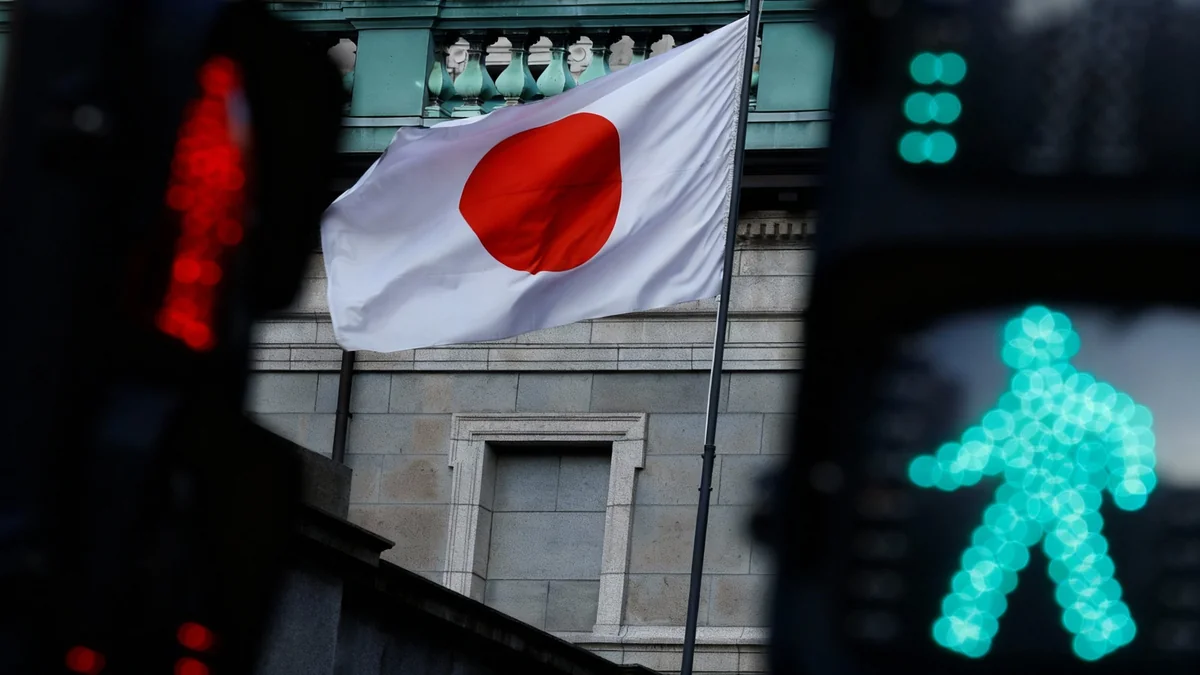Chicago Mayor Brandon Johnson has introduced a proposal to bring back a corporate tax aimed at large companies, a move intended to address the city's significant budget deficit. The plan, which would levy a monthly fee for each employee, has drawn immediate concern from the local business community about its potential impact on jobs and economic growth.
The proposed "head tax" is part of a broader strategy to generate new revenue streams as Chicago faces a budget shortfall of approximately $1.2 billion. If approved, the measure would reintroduce a type of tax the city eliminated more than a decade ago.
Key Takeaways
- Mayor Brandon Johnson has proposed a new "head tax" for companies in Chicago with more than 100 employees.
- The tax would be a $21 monthly fee per employee, with the rate tied to inflation.
- City officials estimate the tax could generate $100 million in annual revenue to help close a $1.2 billion budget gap.
- Business groups, including the Illinois Restaurant Association, have voiced strong opposition, warning it could lead to job losses.
- The proposal comes as several major corporations have recently relocated their headquarters out of Chicago.
Details of the Proposed Tax
The new tax structure would specifically target larger employers. According to the proposal, any company with a workforce exceeding 100 people would be required to pay a monthly fee of $21 for each employee. The tax would apply to employees who spend at least 50% of their working time within the city limits.
To ensure its value keeps pace with economic changes, the tax rate would be indexed to inflation, allowing it to increase automatically over time. City officials project that this measure alone could contribute an estimated $100 million annually to Chicago's finances, providing a new source of funds to address its pressing budget deficit.
A Look at Chicago's Previous Head Tax
This is not the first time Chicago has implemented such a tax. A similar head tax was in place from 1973 until 2014. During that period, it was set at $4 per employee for companies with over 50 workers, generating an average of $20 million per year. The tax was phased out under former Mayor Rahm Emanuel, beginning in 2012, as part of an effort to make the city more business-friendly.
Business Community Raises Concerns
The proposal has been met with significant pushback from local business leaders, who argue that it will create a new financial burden and discourage job creation. The timing is particularly sensitive, as many industries are still navigating post-pandemic economic challenges.
Sam Toia, President of the Illinois Restaurant Association, characterized the proposal as a potential "job killer." He highlighted the thin profit margins within the restaurant industry, which he says have shrunk even further in recent years.
"I used to say before the pandemic, restaurants used to work on nickels and dimes. Now they work on pennies and nickels, and if we have this job-killer head tax, it's going to kill jobs, and we're not going to see the restaurant industry grow here in the city of Chicago," Toia stated.
The concerns extend beyond the hospitality sector. Critics worry that the tax could make Chicago less competitive, potentially accelerating a trend of corporate departures that has already seen several high-profile companies leave the city.
Recent Corporate Departures
In recent years, Chicago has seen a number of major companies relocate their headquarters or significant operations. This list includes:
- Citadel: The hedge fund founded by Ken Griffin.
- Boeing: The aerospace giant.
- Caterpillar: The construction machinery and equipment company.
- Tyson Foods: A major food production corporation.
A Broader Revenue Strategy
The head tax is just one component of a multi-faceted plan to increase city revenue. Mayor Johnson's administration is exploring several other tax-related measures to shore up Chicago's finances.
Other Proposed Tax Increases
The administration is considering a range of new taxes and increases, including:
- Cloud Services Tax: An increase on the existing tax for cloud-based services from 11% to 14%. This is projected to be the largest revenue generator, bringing in an estimated $333 million annually.
- Rideshare Tax: An expansion of the current tax on rideshare services, which would include a new high-traffic zone. This could raise a projected $230 million per year.
- Targeted Industry Taxes: New taxes are also being considered for social media companies, online sports betting platforms, and yacht mooring services.
Together, these proposals represent a significant effort to find new funding sources to pay for city services and close the budget gap. However, the collective impact of these measures on Chicago's business climate remains a central point of debate as the city council prepares to consider the mayor's budget plan.





